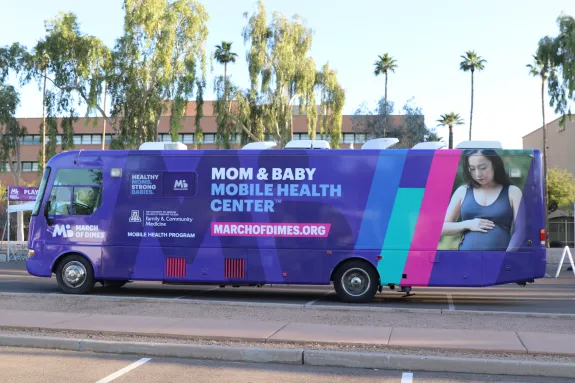
Mobile Health - Evaluating a Health Screening Program
Goals
The Mobile Health - Evaluating a Health Screening Program VIP Team uses data collected over many years of serving the Tucson community to address the question: What is the impact of a health screening program on public housing residents, and does linking those residents to medical care improve their ability to receive medical care in the future?
The Mobile Health Program (MHP) was established in 1976 as a free, mobile clinic for uninsured and low-income patients in Southern Arizona, staffed by Family Medicine physicians. Our mission is to provide free healthcare, health promotion, and disease prevention to uninsured and underinsured individuals in Southern Arizona, while providing educational opportunities for family medicine physicians in training, medical students, and undergraduate students from programs across the health sciences.
One of our flagship programs is Tucson CARES, a health and wellness program for residents of Tucson’s largest public housing complex, Tucson House. The MHP provides weekly health screenings to these residents, targeting many comorbidities including blood pressure screening, point-of-care testing for cholesterol and glucose and height and weight checks. Importantly, this health screening program not only identifies emerging health needs for individuals, but also links those same individuals to needed clinical care. By linking Tucson House Residents to care- by finding a provider, booking appointments, and navigating health insurance barriers - and also working with the ASU School of Social Work to address transportation and food insecurity needs, this health screening program provides robust support to public housing residents. However, not much is understood on how the MHP health screenings impact further care received outside the clinic for the residents experiencing significant health issues. This VIP project will be an evaluation of this health screening program.
Read more about the Mobile Health Program here.
Issues Involved or Addressed
- Program evaluation
- Barriers to accessing healthcare
- Healthcare navigation
- Chronic diseases
Methods and Tech
Our methods include:
- Quantitative methods
- Qualitative methods
- Descriptive Statistics
- Modeling
Academic Majors of Interest
Though open to all majors, we are most interested in students majoring in:
- Data Sciences
- Public Health
- Biostatistics
Preferred Interests and Preparation
- Interest in understanding healthcare systems
- Familiar with concepts of structural violence and health inequity
- Flexibility
- Self-motivated
- Organized
Application Process
This team is currently full for Fall 2025.

